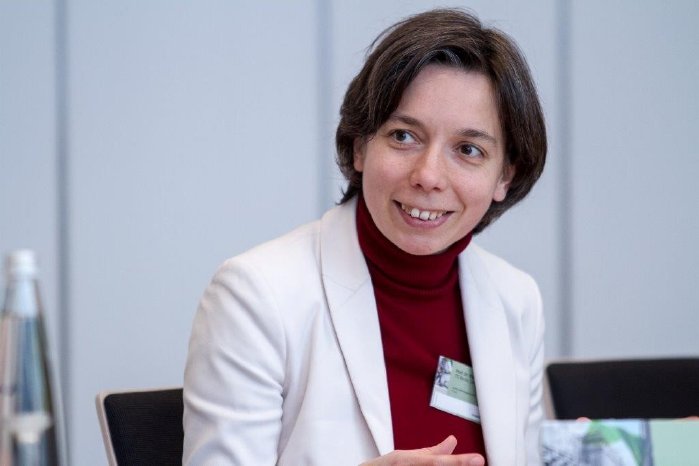Again this year, our congress has attracted a large number of visitors. So far, over 225 participants from a total of 28 different countries have enrolled for the ICBR 2017 – including many from the automotive industry, we are pleased to say. This year, we have again put together an interesting and highly diverse program for our visitors. We are particularly looking forward to our keynote speakers, who will open the congress on September 20. This year we will be welcoming:
- Carlos Martins (Secretary of State of Environment Portugal),
- Nuno Lacasta (President Portuguese Environment Agency),
- Vera Susanne Rotter (Technical University Berlin) and
- Christophe Pillot (Director Avicenne Energy)
At the ICBR 2017, Professor Vera Susanne Rotter will provide us with a summary of the various materials that play a role in a circular economy and also take a more in-depth look at battery recycling in this context. Before the conference we asked Professor Rotter how the collection of waste batteries could be improved and how she generally views the market opportunities for recycled materials. You can read her response to these questions here:
1. The EU requires a collection rate of 45 percent since 2016. Even if the EU Member States reach the quota, more than half of the batteries placed on the market are not collected separately. What makes it so hard to collect more batteries?
This question surely requires a more differentiated answer, because batteries are such a broad product group. Reasons for the lack of collection may not be easily generalized. Specifically very small batteries are often overlooked by consumers and it is so easy to dispose of small batteries in the residual waste, their environmental relevance and recycling potential is underestimated. Bigger batteries face similar challenges like in Waste Electrical and Electronic Equipment (WEEE) in general, hoarding of products in drawers, loss to unwanted and not compliant waste flows, product export, etc.
2. What would be the most important measure to improve the collection rate?
Small batteries like button cells and AAA or AA cells may require simply more customer-oriented communication and convenience to comply with the specifications of the take back systems. A long path to get there. Better inventories of the secondary raw material in the urban mine help to plan according measures.
For selected product groups, new business models would additionally help to increase the collection rate. If only the service of a battery or a battery containing product itself is sold but not the material or product as such, a battery would be returned to the reseller and possibly manufacturer after the use phase for recycling or remanufacturing. This model is in particular interesting for the wide variety of lithium based battery packs. An important aspect, with regard to the foreseen increasing relevance of battery-based technologies.
3. Where do you foresee the largest potential for the use of recycled materials in Europe?
The largest potential can be for materials with a high potential to be refined and purified during the recycling process itself by sorting and chemical or thermal processing, in order to achieve specified grades. This applies in particular to metals, paper, glass. Plastics and mineral waste, e.g. from construction, are surely more challenging fractions to meet the quality demands. Here we need clear design-for-recycling guidelines in terms of material design and additive choice.
4. The European Commission is claiming that EU leads the future for a global environmental protection policy? A myth or a reality?
I believe the EU has initiated a framework based on aligned definitions and clear targets for all MS and this surely contributes to harmonized environmental standards. With the Circular Economy package the EC wants to go one step beyond and to link classical waste policies with requirement for product design. A necessary but challenging task. Nevertheless, considering global markets both in products sale and in recycling we need to coordinate those policies internationally. High environmental standards inside the EU do not help if, as a consequence, pollution then largely will take place outside the EU. Additionally, measures need to prove that they contribute to the underlying environmental targets.
5. Do you foresee an increasing demand for commercial-grade secondary materials?
First, we need a good knowledgebase of available volumes and grades of recycled materials to increase the demand for commercial grade secondary raw materials in the future that the producing sector can rely on and the recycling sector prospectively can plan with. In that sense secondary raw materials have to meet the same requirements as primary raw material. A first step in this direction is the ProSUM project, funded by the European Union and the Swiss Government, which will deliver the First Urban Mine Knowledge Data Platform, a centralized database of all available data and information on arisings, stocks, flows and treatment of waste electrical and electronic equipment (WEEE), end-of-life vehicles (ELVs), batteries and mining wastes. The availability of primary and secondary raw materials data, easily accessible in one platform, will provide the foundation for improving Europe’s position on raw material supply, with the ability to accommodate more wastes and resources in future. (www.prosumproject.eu)
Secondly, we need a mind change of parts of the recycling sector from disposal managers towards raw material suppliers. This requires a strict quality management for recycling products. Undifferentiated recycling targets and unambitious quality standards do not support this transition.
At the ICBR 2017, Professor Rotter will go into greater detail on the topic of further current trends in the recycling market and how they can influence the sector. We greatly look forward to seeing you at this year's industry meeting! For all the details on the program and how to enrol for it, go to: http://www.icm.ch/icbr-2017 .VVVV



